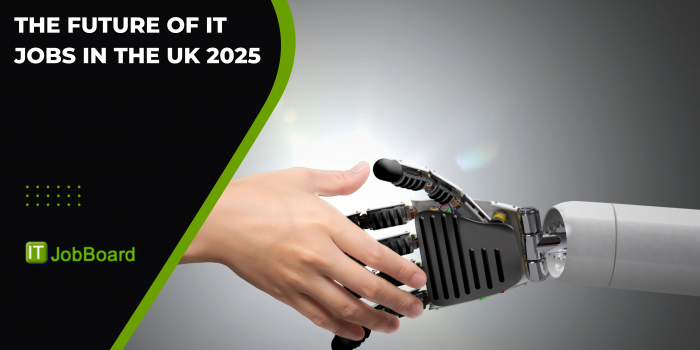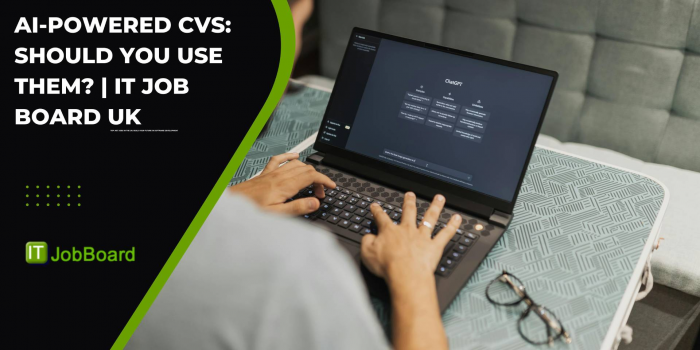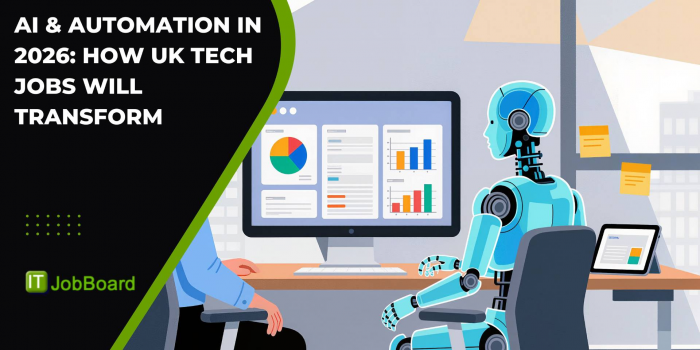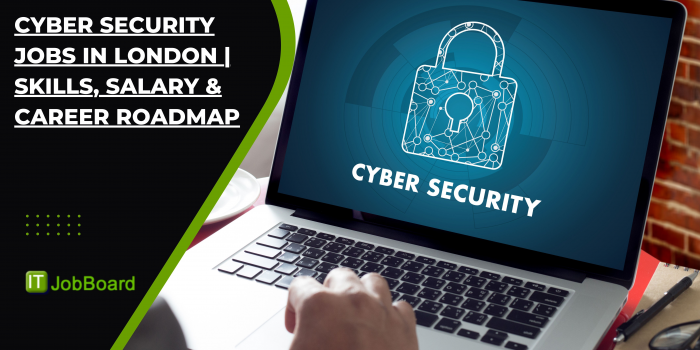Back

How AI and Machine Learning Are Transforming Cyber Security in 2025
22/07/2025

In a world that is rapidly becoming digital-first, there is growing demand for skilled cyber security professionals. Cyber threats are becoming more complex, and both private organisations and government bodies are increasingly investing in digital defense. As shown by the UK labour market projects for cyber security in 2025, cyber security jobs represent some of the fastest growing and most in-demand job roles in the UK.
The cyber security discipline encompasses a wide variety of high-value career opportunities, from ethical hacking and penetration testing to risk management and threat detection. Similarly, cyber roles provide a diversified, high-income profession that is likely to remain stable into the future.
This guide outlines what you need to know about the job market in cyber security, including salaries, elements of core skills, areas of specialisation, and advice to help you secure the right cyber job for you using the IT Job Board UK.
Why Cyber Security Jobs Are Booming in 2025
Over the past couple of years, the UK's cyber landscape has shifted dramatically. With the rise of ransomware attacks, phishing scams, and data breaches, companies across the spectrum from finance and health and retail and government are making cyber security their top priority.
According to Cyber Security Ventures,
"According to Cybersecurity Ventures, "In 2025, cybercrime will cost the world $10.5 trillion annually. Cyber security professionals no longer have the option to be skilled; they have to be essential."
Regulatory frameworks such as GDPR, NIS2, and ISO 27001 compliance also mean that certified information security experts are needed more than ever.
Key Responsibilities of Cybersecurity Positions
Cybersecurity jobs can differ based on specializations in the field, but common responsibilities include the following:
- Identifying and managing threats to IT systems and information
- Performing vulnerability scans and security penetration tests
- Designing firewalls, intrusion detection systems, and an SIEM tool
- Watching alerts for suspicious activity on the network
- Managing security incidents and a business continuity/deployment plan
- Training teams on good cyber hygiene habits and keeping data secure
If you are looking for positions in automation programs or DevSecOps
The essential skills and certifications used in cyber security roles
To prepare yourself for cyber security roles in the UK, you must have solid technical knowledge, analytical skills and an understanding of compliance.
Technical skills
- Network security and protocols (TCP/IP, DNS, VPNs)
- Penetration testing tools (Nmap, Metasploit, Burp Suite)
- SIEM platforms (Splunk, IBM QRadar)
- Cloud security (AWS, Azure, GCP)
- Programming / scripting (Python, Bash, PowerShell)
- Certifications to enhance your CV
- CompTIA Security+ - for beginners
Certified Ethical Hacker (CEH) - Penetration-testing focus
CISSP - Senior security managers
CISM / CISA - Auditing or governance role
AWS Certified Security - Specialty - for candidates focused on the cloud.
Check out AWS Engineer Jobs for relevant opportunities in cloud security/engineering.
Types of Cyber Security Jobs in the UK
Cyber security is a vast field. Here are some of the most in-demand roles in 2025:
- Cyber Security Analyst – Monitors and responds to threats
- Penetration Tester (Ethical Hacker) – Simulates attacks to find vulnerabilities
- Security Engineer – Designs secure IT infrastructure and protocols
- SOC Analyst – Works in Security Operations Center to detect real-time threats
- Chief Information Security Officer (CISO) – Leads enterprise-wide security strategy
- GRC Specialist – Focuses on governance, risk, and compliance
If you're just starting out, check Graduate IT Jobs to find junior and trainee roles.
Cyber Security Salary Trends in 2025
Cyber security jobs offer some of the highest salaries in the IT sector. Here’s a general overview:
|
Role |
Average Salary (UK) |
|
Entry-Level Analyst |
£32,000 – £40,000 |
|
Mid-Level Security Engineer |
£45,000 – £60,000 |
|
Penetration Tester |
£50,000 – £70,000 |
|
SOC Lead / Manager |
£65,000 – £85,000 |
|
CISO / Director |
£100,000 – £150,000+ |
Bonuses, flexible work, and professional training budgets are common in most positions.
Career Progression in Cyber Security
Cyber security professionals enjoy multiple paths for growth:
- Technical Track: Penetration Tester → Security Engineer → Architect
- Management Track: SOC Analyst → SOC Lead → CISO
- Specialist Track: Compliance → GRC Analyst → Risk Officer
- Consulting Track: Cyber Security Consultant → Principal → Director
With the rise of AI and IoT, emerging areas like AI security and quantum cryptography are creating new career options.
You can also pivot to related categories like Information Security Jobs for policy and audit-focused roles.
Conclusion
In 2025, cyber security jobs in the UK offer one of the best combinations of salary, job stability, and career progression in the IT industry. As digital risks continue to evolve, the need for trained, certified professionals will only grow stronger.
If you're ready to take on the challenge of securing digital ecosystems, start your journey today by browsing
Cyber Security Jobs – IT Job Board UK
AI in Cybersecurity – Frequently Asked Questions
Q1. What role does AI play in cybersecurity?
AI strengthens cybersecurity by automating threat detection, scanning massive datasets in real time, and using predictive analytics to forecast potential attacks. It helps organizations uncover vulnerabilities faster and respond to incidents with greater efficiency.
Q2. How does machine learning improve threat detection?
Machine learning models study patterns in network traffic and user activity to spot anomalies. As they learn from previous attacks, these systems become more effective at identifying new, sophisticated, and hard-to-detect threats.
Q3. What are the most common applications of AI in cybersecurity?
AI is widely used for malware detection, intrusion detection systems (IDS), user and entity behavior analytics (UEBA), threat intelligence analysis, and security information and event management (SIEM). These applications improve visibility and speed up response times.
Q4. Can AI stop every cyber-attack?
No. While AI greatly enhances defense, it cannot stop every attack. Cybercriminals also exploit AI to design smarter threats. The best protection comes from combining AI tools with human expertise and a multi-layered security strategy.
Q5. What ethical concerns should businesses consider when applying AI in cybersecurity?
Key concerns include safeguarding data privacy, reducing bias in algorithms, ensuring transparency in decision-making, and maintaining regulatory compliance. Ethical AI means deploying systems that are fair, accountable, and respectful of user rights.















































































































